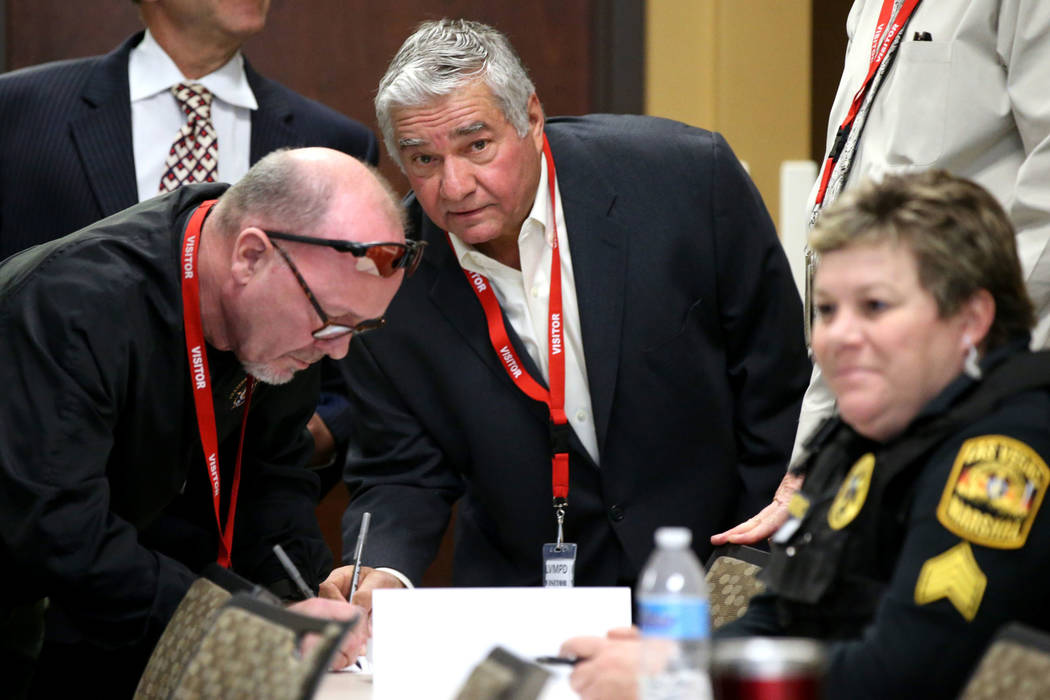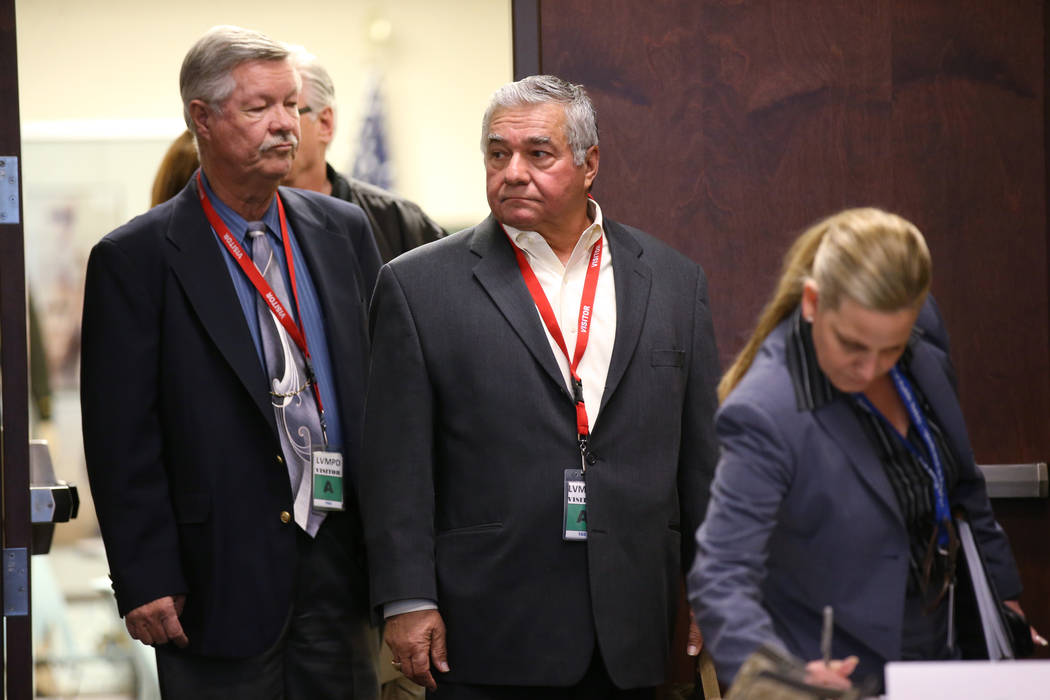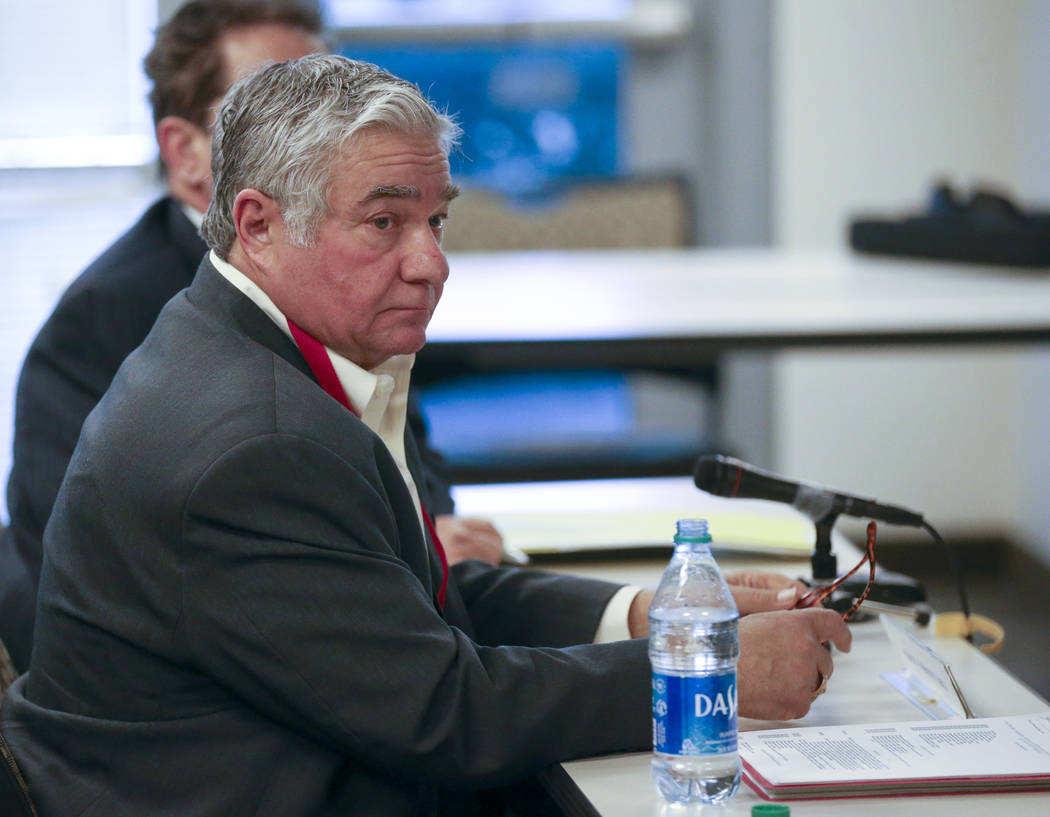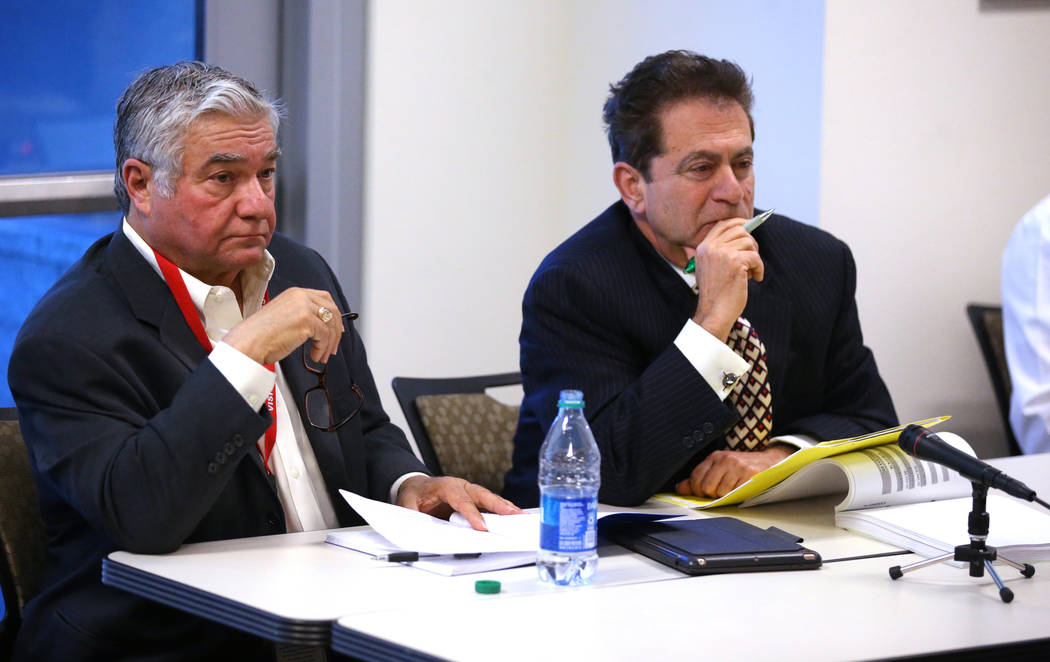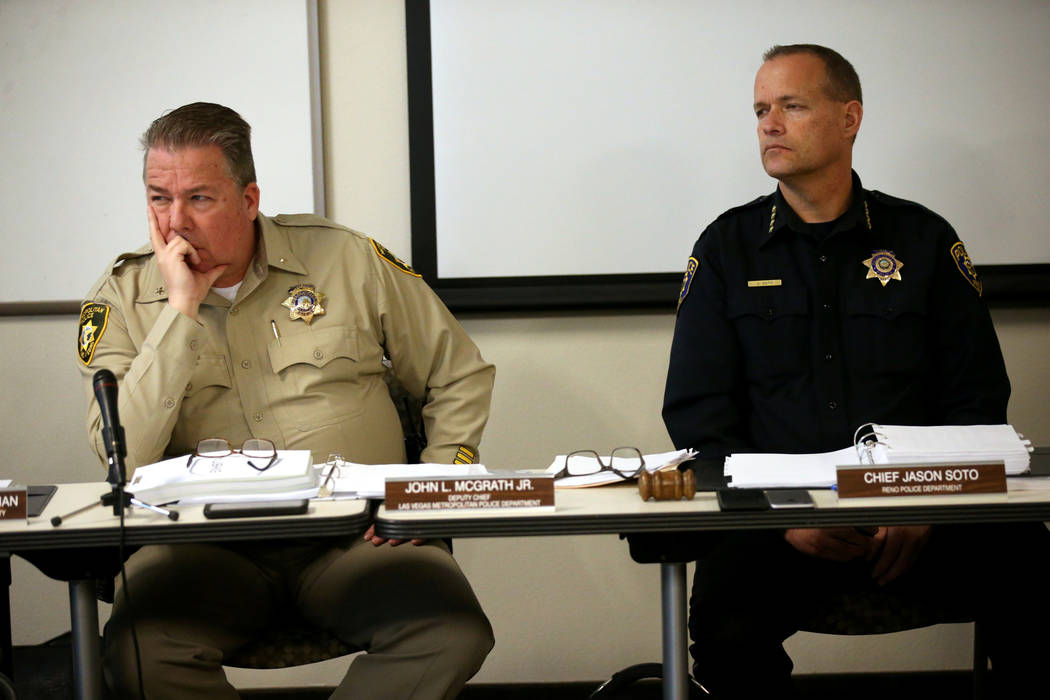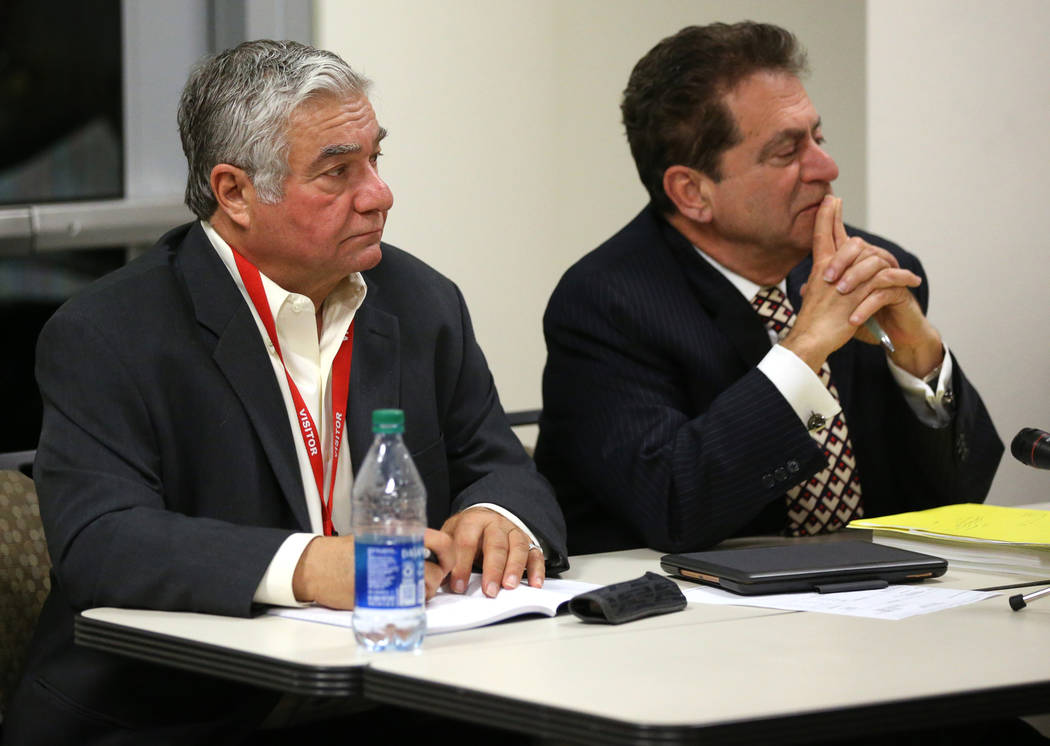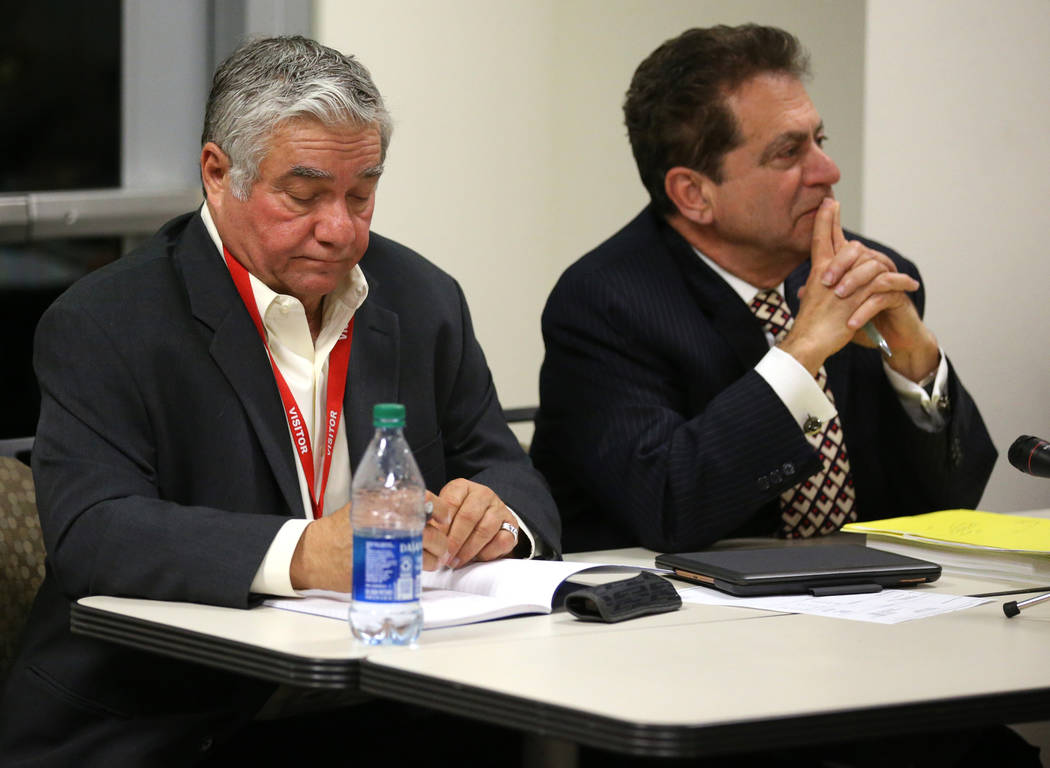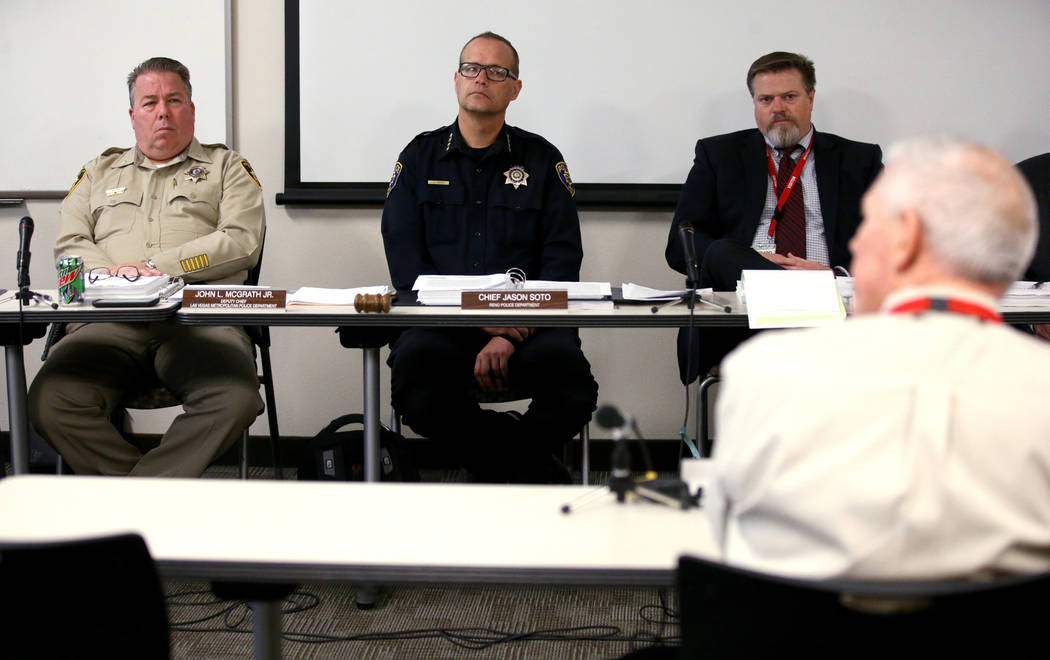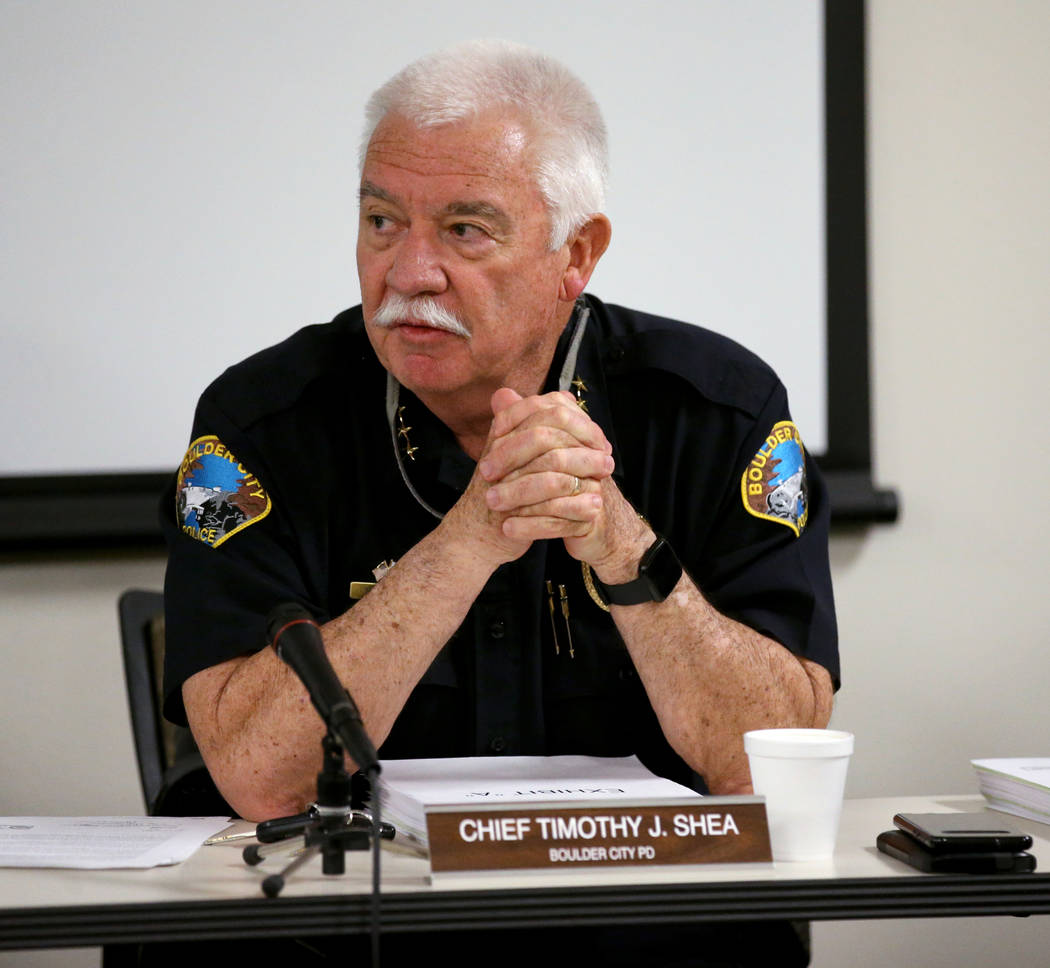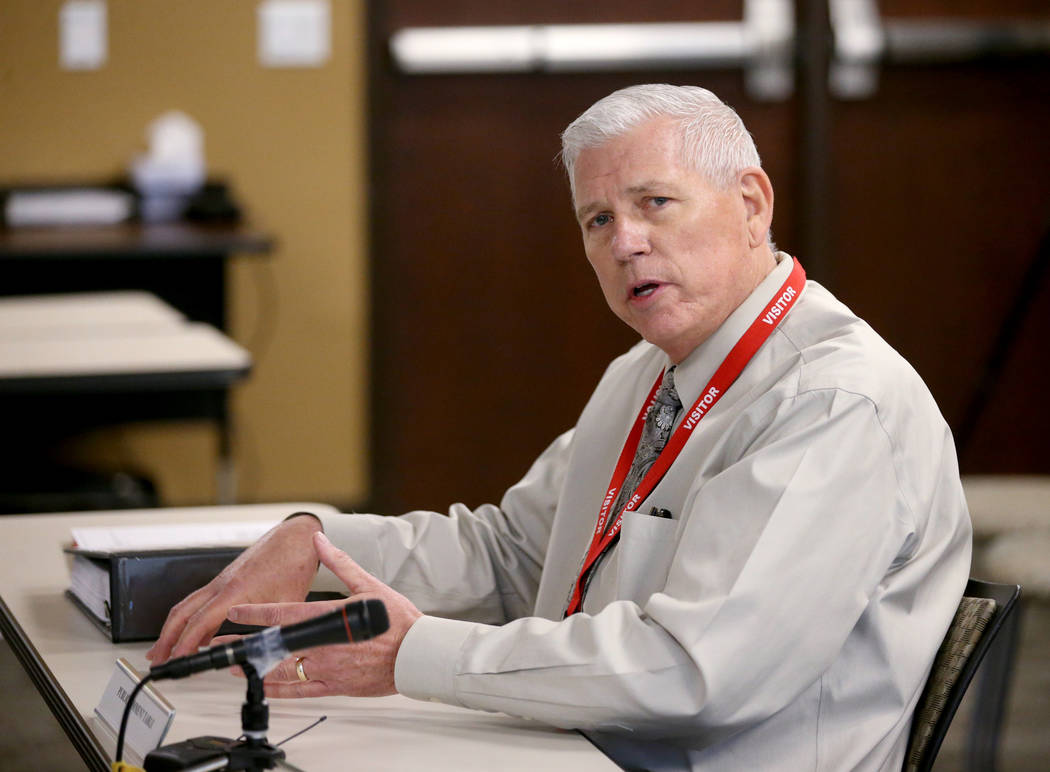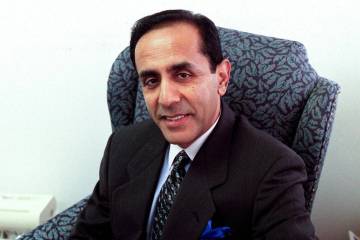Disgraced former constable Earl Mitchell loses police powers
Nevada’s police certification board unanimously revoked disgraced Henderson Constable Earl Mitchell’s police powers Wednesday evening in response to his 2019 fraud conviction.
The criminal investigation of Mitchell started with a Review-Journal article in March 2018, detailing thousands of dollars in checks he wrote to himself, ATM withdrawals at casinos and use of a township debit card at restaurants and for travel. Police served search warrants at Mitchell’s home and office, and he was indicted on five felony counts in late 2018.
Boulder City Police Chief Tim Shea, who is a member of the Peace Officer Standards and Training Commission, said at the hearing that Mitchell’s conduct undermines trust in police officers.
“People have to trust … when there’s a problem and we show up everything is fine,” he said during the meeting. “When bad thing happens with those with badges, it takes a little away from all of us.”
Mitchell’s attorney, Marc Risman, argued that Mitchell’s certification should be suspended for two years instead of revoked.
“Our evidence will show this is not one that calls for the death penalty — the professional death penalty,” he said.
Under revocation, Mitchell will have to wait five years before reapplying for his police powers.
Disqualification urged
Michael Jensen, an attorney in the Nevada attorney general’s office, argued that other officers in Nevada lost their police powers for misusing government credit cards in the amount of a few hundred dollars, in contrast to the $82,000 Mitchell misappropriated.
“He has disqualified himself from acting a peace officer in the future,” he said.
During the hearing, Ronald Averett, a former lieutenant at the Henderson Police Department who worked with Mitchell when he was an officer, testified on his behalf, saying he trusted Mitchell and his work.
“He was not a fireball,” he said. “He wasn’t a go-getter. He was a steady eddie.”
But under questioning by Jensen, Averett conceded that a conviction on a fraud charge should disqualify a person from serving as a police officer.
“If they can’t have that trust in us, we can’t perform properly,” he said.
Mitchell was indicted on four felony theft charges and one charge of fraudulent appropriation of property by a public officer in 2018.
But in July 2019 he reached a plea deal using an Alford plea in which he didn’t admit any wrongdoing but acknowledged that prosecutors probably could prove their case on gross misdemeanor fraudulent conveyance. He agreed to pay back more than $80,000 prosecutors contend he stole from the county while constable.
State rules require the training commission board to revoke police certification from people convicted of a felony, but revoking certification after gross misdemeanor convictions is at the board’s discretion.
Police work
Mitchell did not stop working as police officer after his plea deal.
In August, Mitchell went to work as a police officer at the annual Burning Man festival in the Black Rock Desert, and Pershing County Sheriff Jerry Allen said that he found out about Mitchell’s legal troubles after the event.
“I’m highly upset I didn’t find out until the end of the festival,” he said in a phone interview in October. “Now, everything he touched is tainted.”
Mitchell was paid $6,527.50 in August and September to work as a police officer in the temporary Black Rock City, and he supervised two felonies, a sex assault and a battery on police officer, according to Pershing County District Attorney R. Bryce Shields. Shields said he still plans to pursue Mitchell’s cases because there are other officers involved in many of the arrests and police often shoot body camera video.
Mitchell, who has a series of financial problems, including a $165,000 IRS lien filed at the county recorder’s office, has been working the Burning Man festival since 2016. He has made more than $20,000 for the work, records show.
RJ investigation
The Review-Journal’s 2018 analysis of constable bank statements found that about $151,000 that Mitchell requested for his deputies’ pay and expenses in 2016 and 2017 was not paid to the deputies. Instead, Mitchell wrote to himself about $72,000 in checks out of the township account, which was filled with fees for serving legal documents and evictions.
He also withdrew about $9,000 at ATMs, including ones in casinos and video poker bars, and charged thousands more at restaurants and for travel to a debit card.
Police determined Mitchell used $82,000 of county funds for personal use by inflating pay and expenses for deputies and pocketing the difference, records show.
“The media made the matter public, and he stopped,” prosecutor Jay P. Raman told Judge Douglas Herndon after the indictment was unsealed in 2018.
Mitchell, who had served as constable since 1995, abandoned his 2018 re-election bid right before the Review-Journal story was posted online.
Contact Arthur Kane at akane@reviewjournal.com. Follow @ArthurMKane on Twitter.



